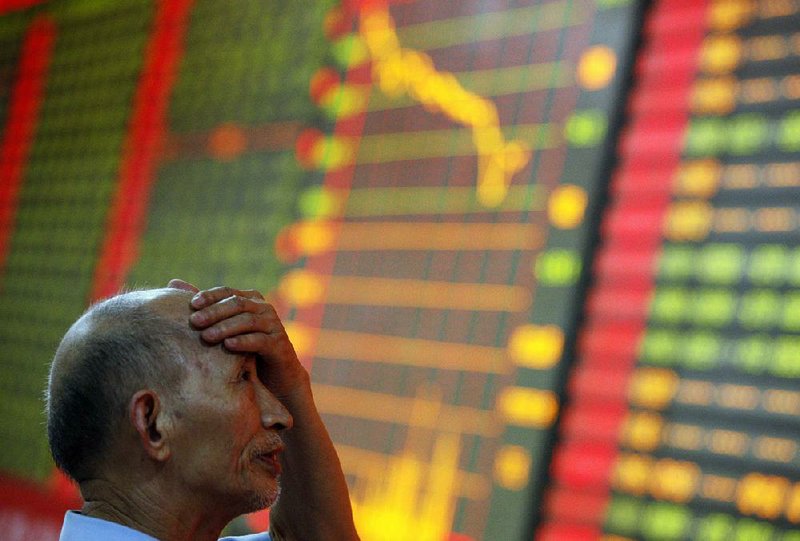More signs of distress in China’s economy and rising bond yields led to a broad sell-off in stocks Monday, leaving the market down 5.7 percent from its all-time high last month.
It’s the first pullback of 5 percent or more since November.
The Dow ended the day down 139.84 points, or 0.9 percent, at 14,659.56. The S&P 500 index fell 19.34 points, or 1.2 percent, to 1,573.09. The Nasdaq dropped 36.49 points, or 1.1 percent, to 3,320.76.
Seven stocks fell for every one that rose on the New York Stock Exchange. Consolidated volume was heavy at 4.7 billion shares.
U.S. trading started Monday morning with a steep drop. The market recovered much of its loss, then fell back again. By the close of trading, the big stock indexes were clinging to modest gains for the second quarter. The last day of trading for the quarter is Friday.
Things were rough for stock investors in the morning. An overnight plunge in China caused by a spike in lending rates led to declines in Europe. France’s benchmark stock index fell 1.7 percent, and Germany’s dropped1.2 percent. China’s Shanghai Composite Index fell 5 percent, its biggest decline in four years. The drop was prompted by a government crackdown on off-balance sheet lending, which made investors worry about China’s economic growth.
U.S. traders took one look at that and sold. The Dow Jones industrial average fell as much as 248 points in the first hour of trading. The yield on the 10-year Treasury note spiked to its highest in almost two years as the sell off brought down prices of U.S. government debt. Gold and other metals also fell.
Stocks got closer to break-even around midday before falling again in the last hour.
All 10 industry groups in the S&P 500 fell. The biggest drop was 1.8 percent for bank and financial stocks. Bank of America fell the most among major bank stocks, giving up 39 cents, or 3.1 percent, to $12.30.
Getting reliable information out of China is difficult, so it takes investors longer to decide how to react to developments there, said Gary Thayer, chief macro strategist for Wells Fargo Advisors.
The turbulence is another a sign of how vulnerable financial markets remain to any comments from the Federal Reserve about its $85 billion in monthly bond purchases, which have kept interest rates at historic lows and helped drive the stock market’s rally. On Wednesday and Thursday, the S&P plunged 3.9 percent after the central bank said its bond-buying program could wrap up by the middle of next year as long as economic conditions continue to improve. Stocks edged up Friday, but still had their worst week in two months.
“I think investors are overreacting to the prospects of a change in Fed policy,” Thayer said. Unemployment is down, inflation is low, and “these are good economic conditions,” he said.
Gold fell $14.90, or 1.2 percent, to $1,277.10. Other metals were down, too. Crude oil rose $1.49, or 1.6 percent, to $95.18 per barrel.
The yield on the 10-year note rose slightly to 2.55 percent. Earlier in the day it was at 2.67, its highest level in almost two years. The yield has surged from its 2013 low of 1.63 percent on May 3. The increase accelerated last week after the Federal Reserve laid out the possible timetable for curtailing its bond-buying program. Yields rise when demand for bonds weakens.
Business, Pages 22 on 06/25/2013

